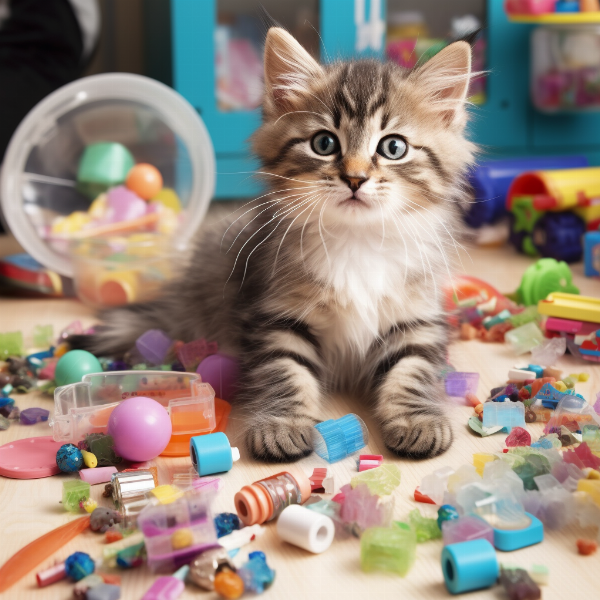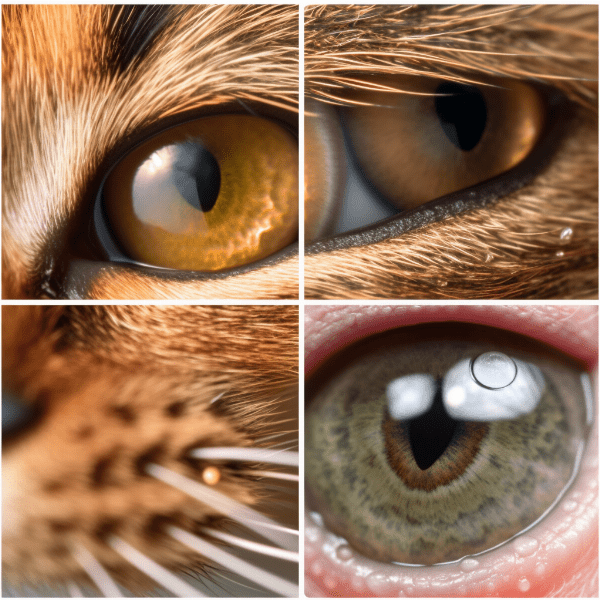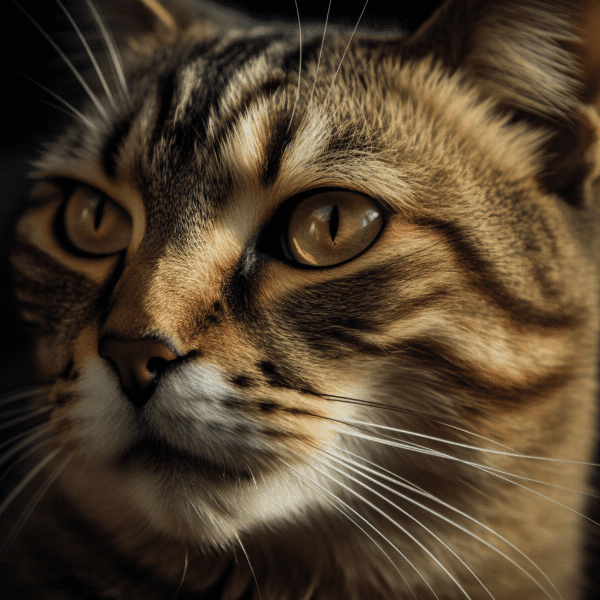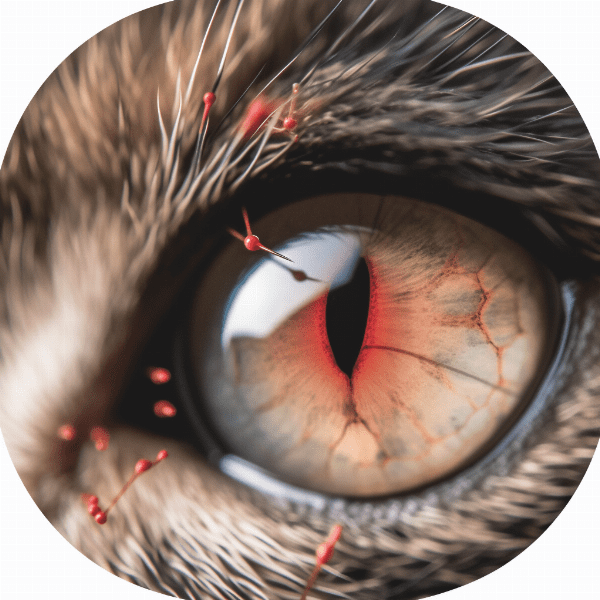Table of Contents
- Understanding Kitten Conjunctivitis
- Symptoms of Kitten Conjunctivitis
- Causes of Kitten Conjunctivitis
- Diagnosis of Kitten Conjunctivitis
- Treatment of Kitten Conjunctivitis
- Preventing Kitten Conjunctivitis
- Tips for Managing Kitten Conjunctivitis at Home
- When to See a Veterinarian for Kitten Conjunctivitis
- Complications of Kitten Conjunctivitis
- Conclusion: Caring for Your Kitten’s Eye Health
Understanding Kitten Conjunctivitis
Kitten conjunctivitis is a common condition that affects young cats. It is a term used to describe inflammation of the conjunctiva, which is the thin layer of tissue that covers the eye and lines the inside of the eyelid. This condition is also known as pink eye, and it can occur in one or both eyes.
The Anatomy of a Kitten’s Eye
To understand kitten conjunctivitis, it’s important to know a little bit about the anatomy of a kitten’s eye. The eye is made up of several parts, including the cornea, iris, pupil, lens, retina, and optic nerve. The cornea is the clear outer layer of the eye, while the iris is the colored part of the eye that surrounds the pupil. The pupil is the black center of the eye, which regulates the amount of light that enters. The lens is a clear structure located behind the iris that helps to focus light on the retina. The retina is the inner layer of the eye that contains cells that are sensitive to light, and the optic nerve is the nerve that carries visual signals from the retina to the brain.
How Kitten Conjunctivitis Develops
Kitten conjunctivitis can develop as a result of various factors, such as viral or bacterial infections, allergies, irritants, or trauma. The conjunctiva may become inflamed and swollen, causing redness, discharge, and discomfort. In some cases, the inflammation may spread to other parts of the eye, leading to more severe symptoms.
The Importance of Early Detection
Early detection of kitten conjunctivitis is crucial for effective treatment. If left untreated, the condition can worsen and lead to complications, such as corneal ulcers, blindness, or even systemic infections. Therefore, it’s important to keep a close eye on your kitten’s eye health and seek veterinary care promptly if you notice any signs of conjunctivitis.
In the next section, we will discuss the symptoms of kitten conjunctivitis in more detail.

Symptoms of Kitten Conjunctivitis
Kitten conjunctivitis can cause a range of symptoms that can vary in severity. The following are some common signs that your kitten may have conjunctivitis:
Redness and Swelling
One of the most noticeable symptoms of kitten conjunctivitis is redness and swelling around the eye. The conjunctiva may appear pink or reddish, and the eyelids may be puffy or swollen.
Discharge
Another common symptom of kitten conjunctivitis is discharge from the eye. The discharge may be watery or thick and can range in color from clear to yellow or green. This discharge may crust around the eye and can make it difficult for your kitten to open its eye fully.
Squinting or Blinking
Kittens with conjunctivitis may also squint or blink frequently. This may be due to discomfort or pain, or it may be a reflexive response to the discharge or inflammation.
Rubbing or Pawing at the Eye
If your kitten has conjunctivitis, it may try to rub or paw at the affected eye. This can worsen the inflammation and may even cause scratches or ulcers on the cornea.
Reduced Appetite or Lethargy
If you notice any of these symptoms in your kitten, it’s important to seek veterinary care promptly. In the next section, we will discuss some of the common causes of kitten conjunctivitis.
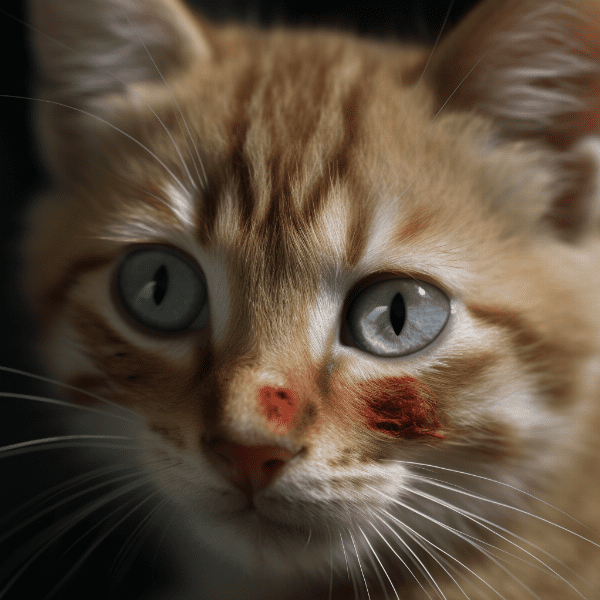
Causes of Kitten Conjunctivitis
Kitten conjunctivitis can be caused by various factors. Some of the most common causes of conjunctivitis in kittens include:
Bacterial Infections
Bacterial infections are a common cause of kitten conjunctivitis. Bacteria can enter the eye through various means, such as direct contact with other infected animals, contaminated objects, or through an injury. Common bacterial species that cause kitten conjunctivitis include Chlamydophila felis, Mycoplasma spp., and Streptococcus spp.
Viral Infections
Viral infections, such as feline herpesvirus (FHV-1) or feline calicivirus (FCV), can also cause kitten conjunctivitis. These viruses can be transmitted through direct contact with infected animals or contaminated objects. FHV-1 is a particularly common cause of conjunctivitis in kittens and can cause severe eye damage if left untreated.
Allergies
Kittens can develop conjunctivitis as a result of allergies to various substances, such as dust, pollen, or certain foods. Allergic conjunctivitis may cause itchiness, redness, and watery discharge.
Irritants
Exposure to irritants, such as smoke, chemicals, or dust, can also cause kitten conjunctivitis. These irritants can cause inflammation and discomfort, which can lead to redness, discharge, and other symptoms.
Trauma
In some cases, kitten conjunctivitis can be caused by trauma, such as scratches or foreign bodies in the eye. These injuries can lead to inflammation and may make the eye more vulnerable to infections.
Understanding the underlying cause of your kitten’s conjunctivitis is crucial for effective treatment. In the next section, we will discuss how kitten conjunctivitis is diagnosed.
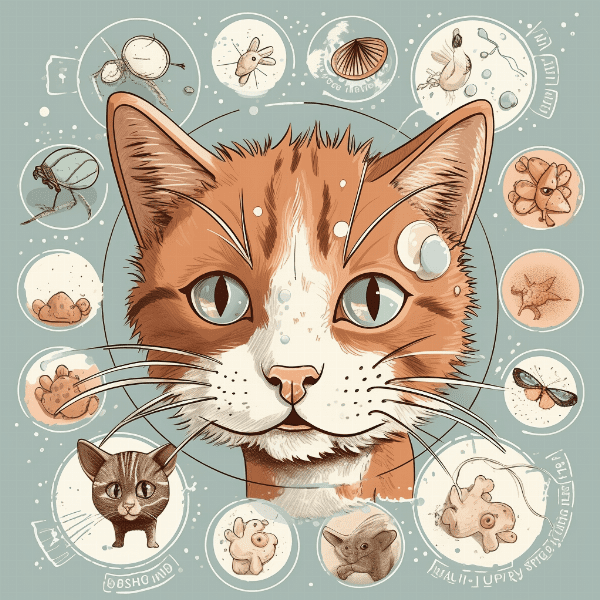
Diagnosis of Kitten Conjunctivitis
If you suspect that your kitten has conjunctivitis, it’s important to seek veterinary care promptly. A veterinarian can perform a thorough examination and diagnostic tests to determine the underlying cause of the conjunctivitis.
Physical Examination
During a physical examination, the veterinarian will examine your kitten’s eyes, looking for signs of redness, swelling, discharge, or other abnormalities. The vet may also perform a general physical exam to check for other symptoms that may be related to the conjunctivitis.
Fluorescein Staining
Fluorescein staining is a common diagnostic test used to evaluate the cornea for scratches or ulcers. The test involves placing a special dye on the cornea, which will adhere to any areas of damage.
Microbial Culture
If the veterinarian suspects that a bacterial or fungal infection is causing the conjunctivitis, they may perform a microbial culture. This involves taking a sample of the discharge from the eye and sending it to a laboratory for analysis. The results of the culture can help the vet determine the appropriate antibiotic or antifungal medication to treat the infection.
Blood Tests
In some cases, the veterinarian may recommend blood tests to help diagnose the underlying cause of the conjunctivitis. For example, blood tests can be used to detect antibodies to viruses like FHV-1 or FCV.
Imaging Tests
Imaging tests, such as radiographs or ultrasound, may be recommended if the veterinarian suspects that a foreign body or other structural abnormality is causing the conjunctivitis.
By performing a thorough examination and diagnostic tests, the veterinarian can determine the underlying cause of the conjunctivitis and develop an appropriate treatment plan. In the next section, we will discuss some common treatments for kitten conjunctivitis.
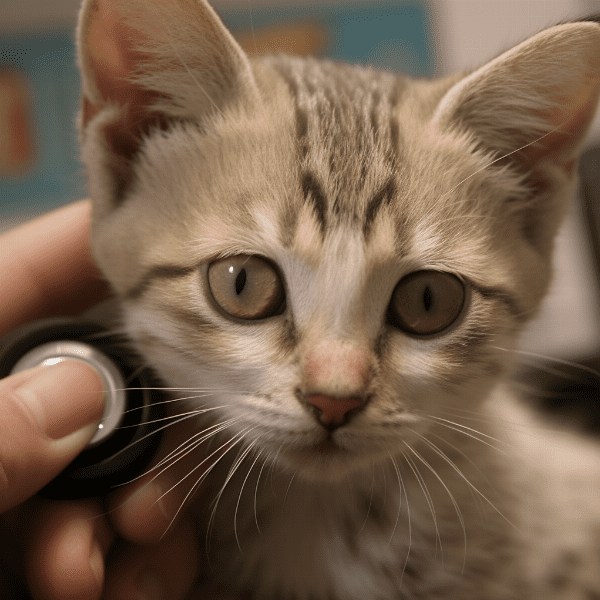
Treatment of Kitten Conjunctivitis
The treatment for kitten conjunctivitis will depend on the underlying cause of the condition. In many cases, medication and supportive care are necessary to manage the symptoms and promote healing.
Antibiotics
If the veterinarian suspects that a bacterial infection is causing the conjunctivitis, they may prescribe antibiotics. Antibiotics can be administered topically as eye drops or ointment, or orally as a pill or liquid. The medication should be administered according to the veterinarian’s instructions to ensure proper dosage and duration of treatment.
Antivirals
If the conjunctivitis is caused by a viral infection, antiviral medication may be prescribed. These medications can help reduce the severity of symptoms and prevent further eye damage.
Anti-inflammatory Medication
Anti-inflammatory medication, such as steroids, may be prescribed to reduce inflammation and relieve discomfort. These medications may be administered topically as eye drops or ointment, or orally as a pill or liquid.
Supportive Care
In addition to medication, supportive care may be necessary to manage the symptoms of kitten conjunctivitis. This may include regular cleaning of the eyes with a warm, damp cloth to remove discharge and crusting. The veterinarian may also recommend using a humidifier to keep the air moist and prevent further irritation.
Surgery
In some cases, surgery may be necessary to treat kitten conjunctivitis. For example, if a foreign body is causing the conjunctivitis, surgical removal may be necessary. Corneal ulcers may also require surgical intervention to prevent further damage to the eye.
With proper treatment and care, most cases of kitten conjunctivitis can be managed effectively. In the next section, we will discuss some ways to prevent kitten conjunctivitis from occurring in the first place.
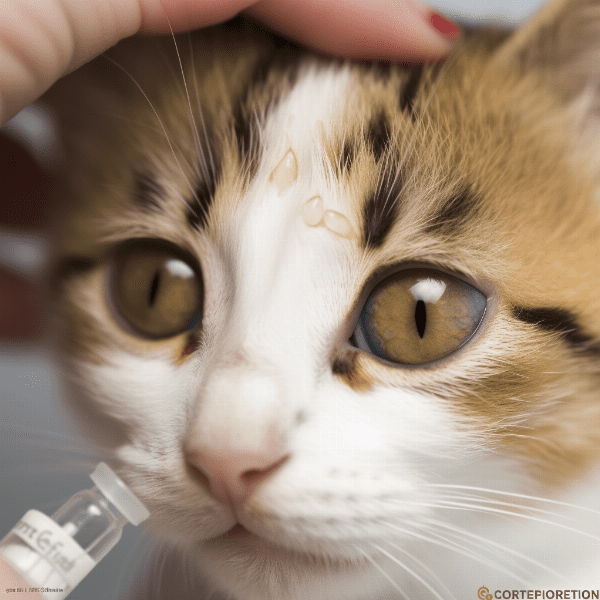
Preventing Kitten Conjunctivitis
While not all cases of kitten conjunctivitis can be prevented, there are some steps you can take to reduce the risk of your kitten developing the condition.
Practice Good Hygiene
One of the best ways to prevent the spread of bacterial or viral infections is to practice good hygiene. Wash your hands thoroughly before and after handling your kitten, and avoid sharing food or water dishes with other animals.
Keep Your Kitten’s Environment Clean
Regular cleaning of your kitten’s environment can help prevent the buildup of dust, allergens, and other irritants that can cause conjunctivitis. Clean your kitten’s bedding, toys, and litter box regularly, and vacuum your home frequently to reduce the amount of dust and pet hair.
Vaccinate Your Kitten
Vaccination is an important way to protect your kitten from viral infections that can cause conjunctivitis. Make sure your kitten is up-to-date on all necessary vaccinations, and follow your veterinarian’s recommendations for booster shots and other preventive care.
Keep Your Kitten Away from Sick Animals
If you know that other animals are sick, keep your kitten away from them to reduce the risk of infection. Avoid taking your kitten to places where other animals congregate, such as pet stores or dog parks, until your kitten has received all necessary vaccinations.
Seek Veterinary Care Promptly
If you notice any signs of conjunctivitis in your kitten, seek veterinary care promptly. Early diagnosis and treatment can help prevent the spread of infection and reduce the risk of complications.
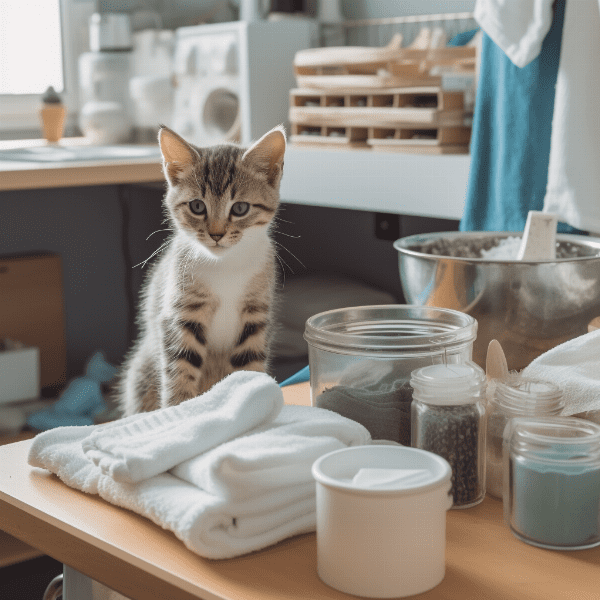
Tips for Managing Kitten Conjunctivitis at Home
If your kitten has been diagnosed with conjunctivitis, there are some things you can do at home to help manage the symptoms and promote healing.
Administer Medication as Directed
If your veterinarian has prescribed medication for your kitten, it’s important to administer it as directed. Follow the dosage instructions carefully, and make sure to finish the entire course of medication even if the symptoms improve.
Keep the Eye Area Clean
Regular cleaning of the eye area can help reduce discharge and crusting. Use a warm, damp cloth to gently wipe away any discharge or debris from the eye area. Be gentle and avoid rubbing or applying too much pressure to the eye.
Provide Comfort and Support
Kittens with conjunctivitis may experience discomfort or pain. Provide comfort and support to your kitten by creating a warm, quiet, and comfortable environment. Offer plenty of soft bedding, and provide toys and other distractions to keep your kitten entertained.
Monitor for Complications
Keep a close eye on your kitten’s eye health and monitor for any signs of complications, such as corneal ulcers or severe inflammation. If you notice any changes in your kitten’s condition or symptoms, contact your veterinarian promptly.
Prevent the Spread of Infection
If your kitten has a contagious form of conjunctivitis, such as a bacterial or viral infection, take steps to prevent the spread of infection to other animals or humans. Wash your hands thoroughly after handling your kitten, and avoid sharing food or water dishes with other animals.
By following these tips, you can help manage your kitten’s conjunctivitis and promote overall eye health. In the next section, we will discuss when to see a veterinarian for kitten conjunctivitis.
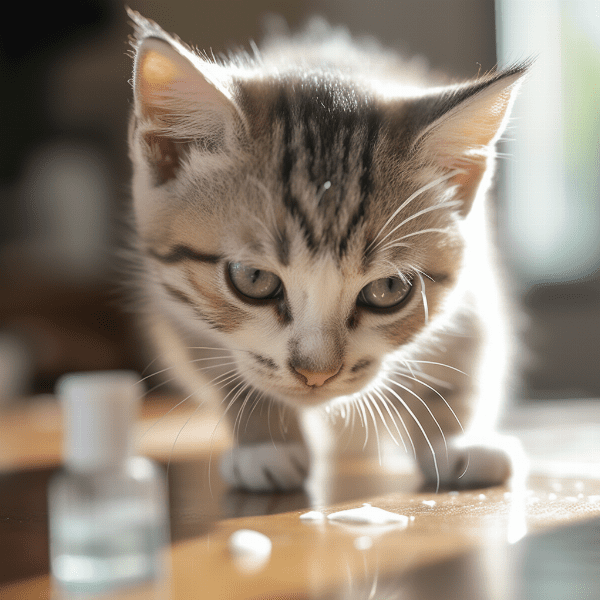
When to See a Veterinarian for Kitten Conjunctivitis
If you notice any signs of conjunctivitis in your kitten, it’s important to seek veterinary care promptly. While some cases of conjunctivitis may resolve on their own, others require prompt diagnosis and treatment to prevent further complications.
Signs of Severe Infection
If your kitten has severe conjunctivitis, it may require more aggressive treatment to manage the symptoms and prevent further damage to the eye. Signs of severe infection may include excessive discharge, severe redness or swelling, or signs of pain or discomfort.
Systemic Symptoms
In some cases, kitten conjunctivitis can cause systemic symptoms, such as reduced appetite or lethargy. These symptoms may be a sign that the infection is spreading or that your kitten is in pain.
History of Eye Problems
If your kitten has a history of eye problems, such as recurrent conjunctivitis or corneal ulcers, it’s important to seek veterinary care promptly. Your veterinarian may recommend additional testing or treatment to help manage the condition and prevent further eye damage.
Contagious Infections
If your kitten has a contagious form of conjunctivitis, such as a bacterial or viral infection, it’s important to seek veterinary care promptly to prevent the spread of infection to other animals or humans.
By seeking veterinary care promptly, you can help ensure that your kitten receives prompt and effective treatment for conjunctivitis. Your veterinarian can provide a thorough examination and develop an appropriate treatment plan to manage the condition and promote overall eye health.
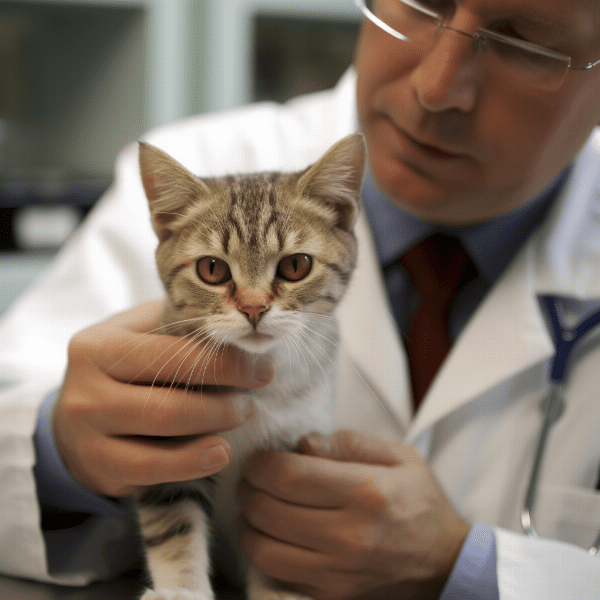
Complications of Kitten Conjunctivitis
While most cases of kitten conjunctivitis can be effectively managed with prompt diagnosis and treatment, there is a risk of complications if the condition is left untreated or becomes severe.
Corneal Ulcers
Corneal ulcers can develop as a complication of untreated or severe conjunctivitis. These ulcers can cause pain, redness, and discharge, and can lead to scarring or even blindness if left untreated.
Blindness
In rare cases, kitten conjunctivitis can cause permanent vision loss or blindness if it leads to severe damage to the eye. It’s important to seek veterinary care promptly if you notice any signs of conjunctivitis in your kitten to prevent the risk of blindness.
Systemic Infection
In some cases, kitten conjunctivitis can lead to systemic infection if the infection spreads beyond the eye. This can cause a range of symptoms, including fever, lethargy, reduced appetite, and other signs of illness.
Recurrent Conjunctivitis
Some kittens may experience recurrent episodes of conjunctivitis, even with prompt treatment. Recurrent conjunctivitis may be a sign of an underlying health condition or a weakened immune system.
By seeking veterinary care promptly and following the appropriate treatment plan, you can help reduce the risk of complications and promote overall eye health for your kitten.

Conclusion: Caring for Your Kitten’s Eye Health
Kitten conjunctivitis is a common condition that can be caused by a range of factors, including bacterial or viral infections, allergies, or foreign bodies. While the condition can be uncomfortable and even painful for your kitten, prompt diagnosis and treatment can help manage the symptoms and promote healing.
To care for your kitten’s eye health, it’s important to practice good hygiene, keep your kitten’s environment clean, and provide appropriate preventive care, including vaccinations. If you notice any signs of conjunctivitis in your kitten, seek veterinary care promptly to ensure prompt diagnosis and treatment.
By working with your veterinarian to develop an appropriate treatment plan and following the recommended care guidelines, you can help manage your kitten’s conjunctivitis and promote overall eye health. With proper care and attention, your kitten can enjoy healthy, happy eyes for years to come.
